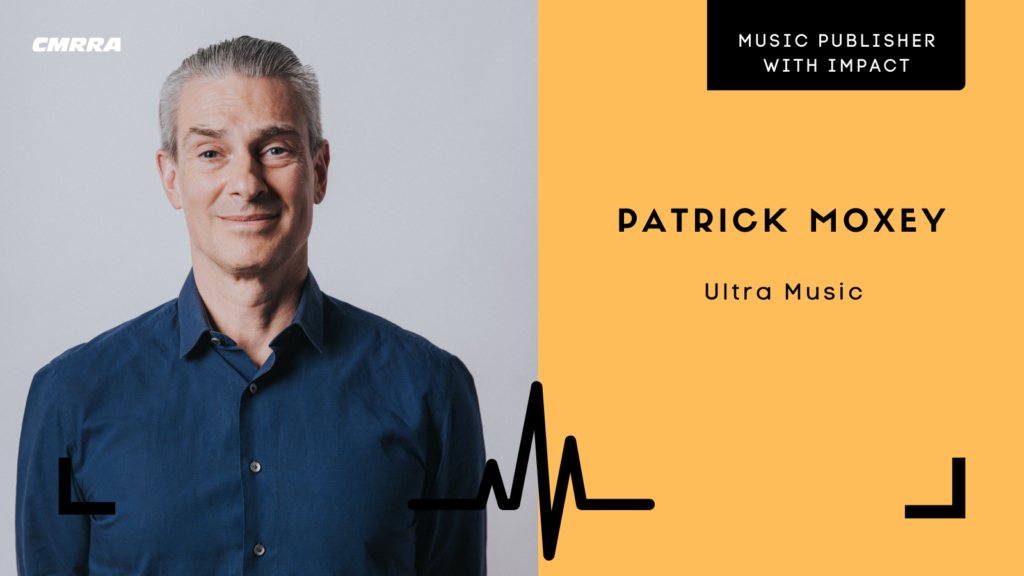by Jon Dekel

Long before he was a godhead in the global ascent of hip hop and dance music, Patrick Moxey fell for the beats. As a student and budding DJ at the University of Chicago in the 1980s, Moxey immersed himself in the city’s nascent House music scene. Later, when he came to New York to ostensibly attend NYU’s graduate film program, he brought over that underground mentality, hosting legendary warehouse parties that would draw celebrities and scenesters alike.
Towards the end of the decade, Moxey launched his first label, Payday Records. At Payday, he earned a reputation for identifying future hip hop superstars, signing, amongst others, Jay Z and Mos Def. From there, he took on a role as Senior VP of A&R for EMI’s Virgin Records America, where he added N.E.R.D, Kelis and Beenie Man to the Roster. However, when he attempted to extend the same courtesy to up-and-coming dance acts, his fellow executives allowed him to develop dance and electronic music outside of the building.
Frustrated by this lack of vision, Moxey launched Ultra Records in 1996. 25 years later, the label is a pop and EDM powerhouse. As of 2018, Ultra’s catalogue included 13 Platinum and 17 Gold records in the United States, as well as 19 Platinum and 15 Gold records in Canada and 5 Diamond, 64 Platinum and 50 Gold records Internationally. Meanwhile, its publishing arm, Ultra International Music Publishing (UIMP), boasts credits on tracks by megastars including Drake, Kanye West, Eminem, Future, Madonna, Rihanna, Katy Perry and James Arthur.
On a recent morning, Moxey recalled how launching Ultra led him to become one of the most impactful independent global music publishers.
“We started out doing a lot of compilations,” he explained, speaking from Ultra Publishing’s London base over Zoom (the company also has offices in New York and Los Angeles as well as affiliated operations in Canada, France, Germany, Sweden, Russia, Asia and Italy). “But as I got more and more drawn to the actual recording process I began to understand the dynamic of the song; what gifted songwriters could bring to make a track, especially a dance or electronic or hip hop track, come alive. I really came to realise that the song — the actual writing and the top line — that’s what pulls the rhythmic elements to a high level. That was really exciting.”
Just as he’s done with House and hip hop, Moxey took this revelation and applied it to the mass market, launching Ultra Publishing in 2001.
Looking back on 20 years of UIMP, Moxey said he’s proud of how the company has “grown very organically.”
“We’re a self-financed boutique publisher that’s grown to over 30,000 songs the organic way,” he explained.
Modelled in the style of classic publishing houses like the Brill Building and Motown’s Jobete, UIMP have brick and mortar studios in LA, London, and Stockholm where they encourage their roster to gather and create, resulting in hits such as Kygo’s “First Time,” which was written by Canadian songwriter Jenson Vaughan as part of a Stockholm songwriting camp. “Music is about people and it’s about creative culture. We work closely with our creators to help them create. I’m always challenging our A&R: I tell them they’re the chefs making the songs and the better the quality of the ingredients that they’re cooking with, the better the chances that the souffle will rise,” Moxey said. “We’re helping create a ton of value in a way that I think that the big companies have forgotten. For them, publishing is to a large extent a spreadsheet and for us, it’s the exact opposite — it’s the dynamic of connecting people and having camps and really creating together.”
Asked where the publishing industry is headed, Moxey said that, with the proliferation of digital content and a more varied DSP landscape, as well as more opportunity to land syncs for trailers, he believes there’s a good horizon for publishing. However, he added, “we need to make sure that the songwriters and the publishers get a fair share.”
To that end, Moxey said working with the CMRRA has “really been fantastic.”
“CMRRA have really been our right hands on the ground in Canada. It’s great to see CMRRA working alongside Ultra Publishing’s Canadian team, Andreas Rizek and Awesome Awan. We’re in constant communication” he continued. “It’s been a long lasting and very, very good partnership. In terms of all the global societies we work with, we find them to be at the very top.”
Editorial Note: We reached out to Patrick to see if he could mention a song that had an impact on his life. He named David Bowie’s Life on Mars and explained:
“He is my all time favourite artist. I lived in Berlin for a year in 1982 and got to see him in concert. He had just cut those three really depressing Berlin trilogy albums – Low, Heroes and Lodger. Seeing his performance and then later visiting Hansa Studio, where he recorded Heroes, that was the biggest thrill. His music still really speaks to me.”
#withIMPACT Music Publishers are the heart of our industry. In 2021, we’re highlighting eleven Music Publishers with impact. We’re also discussing songs. We acknowledge that there is not one measure that quantifies a song’s success, so, we’re discussing all the ways we can think of qualifies as impact – songs that started revolutions, launched movements, were the catalyst for change, started love stories or just plain inspired.
Thinking about becoming a client of CMRRA? Already a client but you have questions? Email us at [email protected] and we’ll get you the answers you need.


